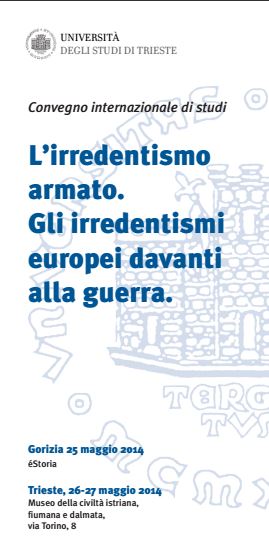International Conference
In the Shadow of the Cold War.
Domestic and International Terrorism in the Former Communist Countries
(Poland), 8-9 October 2015
Deadline for the submission of proposals is March 31, 2015.
International terrorism paralyzed the societies of Western Europe in the 70’s and 80’s. Aircraft hijackings, bombings, and assassinations were part of daily, brutal reality.
The hostile acts were organized by separatist movements, leftists, rightists, and Middle-Eastern terrorist organizations. The Communist mass media propaganda often alleged that international terrorism was a result of social inequality and instability in capitalist states. In contrast to Western Europe, the countries ruled by Communist parties were presented as oases of calm where the threat of terrorism did not exist.
After the fall of the Iron Curtain several former Soviet bloc countries declassified their records from the security apparatus archives. The new sources proved that most of the Communist Secret Service agencies had maintained informal relations with various terrorist and extremist organizations, such as for example Abu Nidal’s Organization, the Palestine Liberation Organization, Carlos (“The Jackal’s”) group, the Popular Front for the Liberation of Palestine, the Red Army Faction and the Red Brigades. The Communist authorities allowed them to conduct terrorist activities, gave them safe transit and visas, supplied them with arms, and turned a blind eye to their business ventures. Hence, the platform of their cooperation was quite wide. In return, the Communist Secret Services benefited from these contacts by getting access to embargoed goods, and used terrorists as arms brokers or for gathering intelligence information. The declassification of former
security apparatus files has also demonstrated that the Communist states were in fact not free from domestic and international terrorism.
1
The 25th anniversary of the Autumn of Nations (1989) provides a great opportunity to analyze the phenomenon of international terrorism during the Cold War period. Why did countries ruled by the Communists cooperate with terrorist organizations? Were their secret ties based on ideological, geopolitical or economic grounds? What was the role of the USSR in such collaborations? Did the authorities in Moscow recommend contacts with terrorists, or was it left as an individual matter for every government? Was terrorism perceived as a useful tool to destabilize Western countries? The least known aspects are related to the extreme manifestations of social resistance to the Communist authorities, which could be interpreted as domestic The conference will give the floor to researchers specializing in Eastern European archives. We also welcome abstracts that combine archival research with the analysis of such data. We are particularly interested in a broader perspective and comparative studies. How did Communist countries (including Cuba, PRC and North Korea) cooperate in the matter of international terrorism? Which elements of this activity were common to Communist countries, and in which respects did they differ? The networks of Cold War terrorism spread across the globe, beyond the borders of Latin America, Europe, the Middle East, and Asia. We would like to compare the approach towards terrorism from Western and Eastern perspectives. We would also welcome analysis of the role of intelligence services in counterterrorism policy and examination of the roots of Special Forces which were formed to combat the terrorist threat.
The conference is organized by the Institute of National Remembrance – Commission for the Prosecution of Crimes against the Polish Nation.
The language of the conference will be English.
Conference venue will be announced later.
All those interested are encouraged to participate. In the case of the presenters,
accommodations, meals, and travel expenses will be covered by the conference
organizers. Conference participation is free of charge.
2
Deadline for the submission of proposals is March 31, 2015. Please enclose, along with the proposal, an abstract of your paper of 500–700 words in English, and a copy of one published academic text (no less than 5000-6000 words with footnotes) or a link to it, if it
is available online. The text can be in English, French, German, Polish, Slovak, or Czech.
The conference program will be made available by April 30, 2015
We are planning to publish selected papers.
Submissions should be sent to: przemyslaw.gasztold-sen@ipn.gov.pl
or: Przemysław Gasztold-Seń
Instytut Pamięci Narodowej
Biuro Edukacji Publicznej
ul. Wołoska 7, 02-675 Warszawa
POLAND
“Conference Domestic and International Terrorism in the Former Communist Countries”
For additional information please contact: przemyslaw.gasztold-sen@ipn.gov.pl













